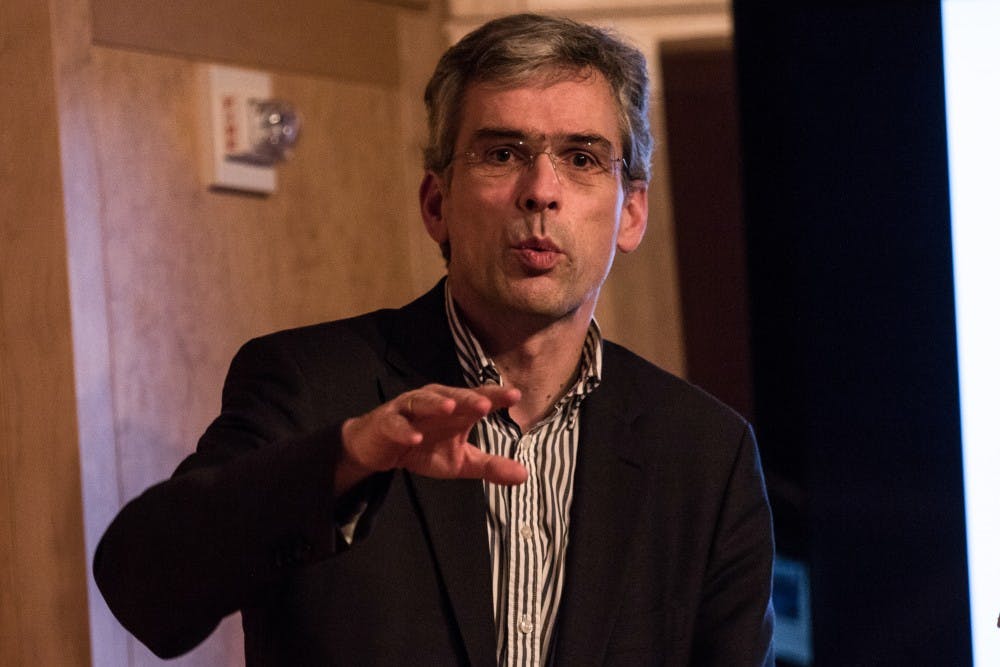German professor visits CMU, talks communism around the world

Flying in from the German-based Friedrich Schiller University to speak on communism, Joachim von Puttkamer captured the attention of students and faculty alike. He discussed “Museums of Communism: Exhibiting Twentieth-Century History in Central and Eastern Europe.”
This was Puttkamer’s first time at Central Michigan University. He came to share his knowledge on different communism museums from all around the world. He travels the world to analyze these museums and how they represent communism compared to each other. Some of the countries he has visited are Hungary, Romania, Poland and more.
He has a few main questions he asks himself while analyzing the museums' structures, looking for general patterns or how exhibitions are created, narrations of totalitarianism ideology and how the museum emphasizes certain events in history. Puttkamer used a slideshow in order to show the audience what he found.
“The main things I look for in a communism museum are diverse narrations of totalitarianism and similar means to make history come alive,” Puttkamer said.
Mitchell Hall, Chairman of the History Department, went to see Puttkamer speak because he is involved with the exchange program. He takes part in sending people to other countries to study things like communism and history. He also strives to strengthen and maintain the PhD Program at CMU, using what Puttkamer does for support.
“I enjoy the public displays and how they interpret historical events,” Hall said.
Georgia doctorate student Dallas Michelbacher came to CMU with his dissertation group to hear Puttkamer speak. They came because their fields of study are similar to Puttkamer’s topic and Michelbacher’s purpose of attending was to defend defend his dissertation.
He is also very interested in what Puttkamer had to say, especially when it came to Romanian history.
“I study Romania, so I found that information interesting. Museums in Romania are very different compared to other countries because they focus solely on communism; you would not find a museum on the Holocaust there,” Michelbacher said.



